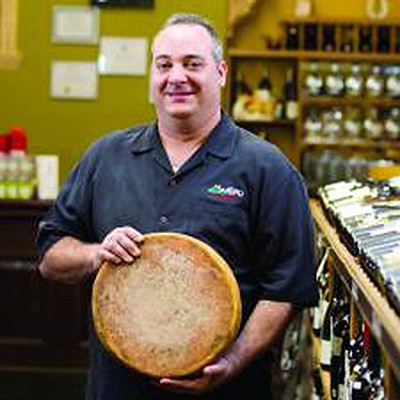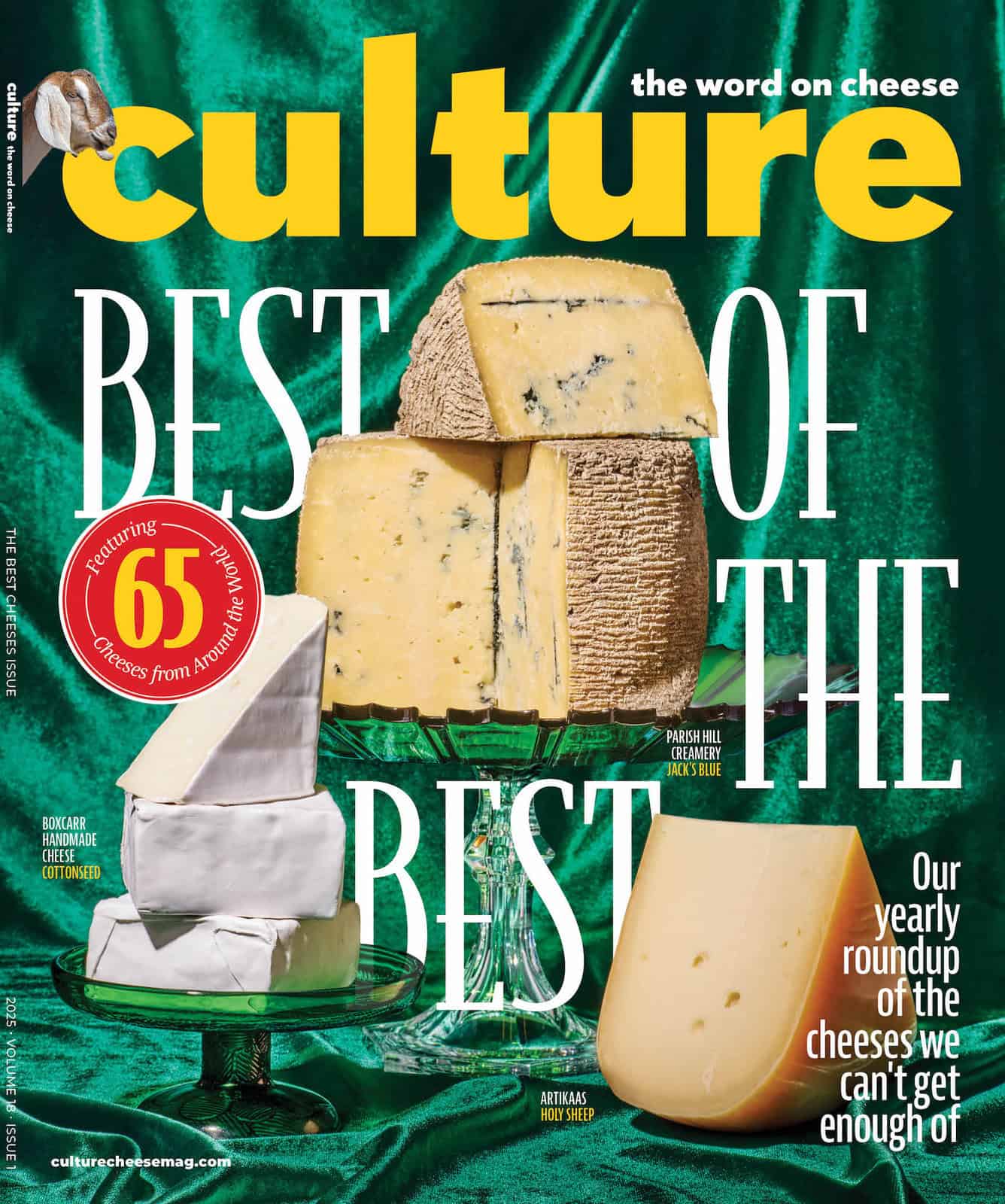
The difference between sharp (“piccante”) and mild (“dolce”) provolone is a result of both the recipe and the amount of aging time. Although both provolone types are made from whole cow’s milk, piccante provolone is made with goat or lamb rennet and goat lipase, while dolce provolone is made with calf rennet and calf lipase. These are enzymes added to the milk at the beginning stages of the cheesemaking process—the rennet causes the coagulation, and the lipase is used to develop the flavor profile that the cheesemaker is after. The dolce provolone is aged only up to 4 months, while the piccante is aged 9 months to 3 years. At 18 months traditional producers such as Auricchio will refer to it as “stravecchio.” Also, many Italian-influenced cheese shops will hang the provolone and continue to age it “in house,” as we do at Mazzaro’s. In fact, we are aging a colossal 12-foot, 1,100-pound torpedo right now that came to us at about 2 years old. We will be aging it for an additional year.
Feature Photo Credit: studio_smile | Shutterstock




